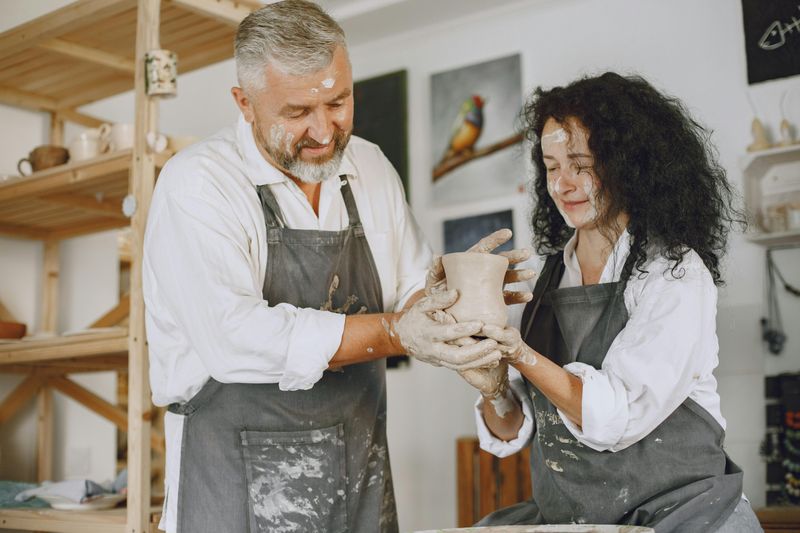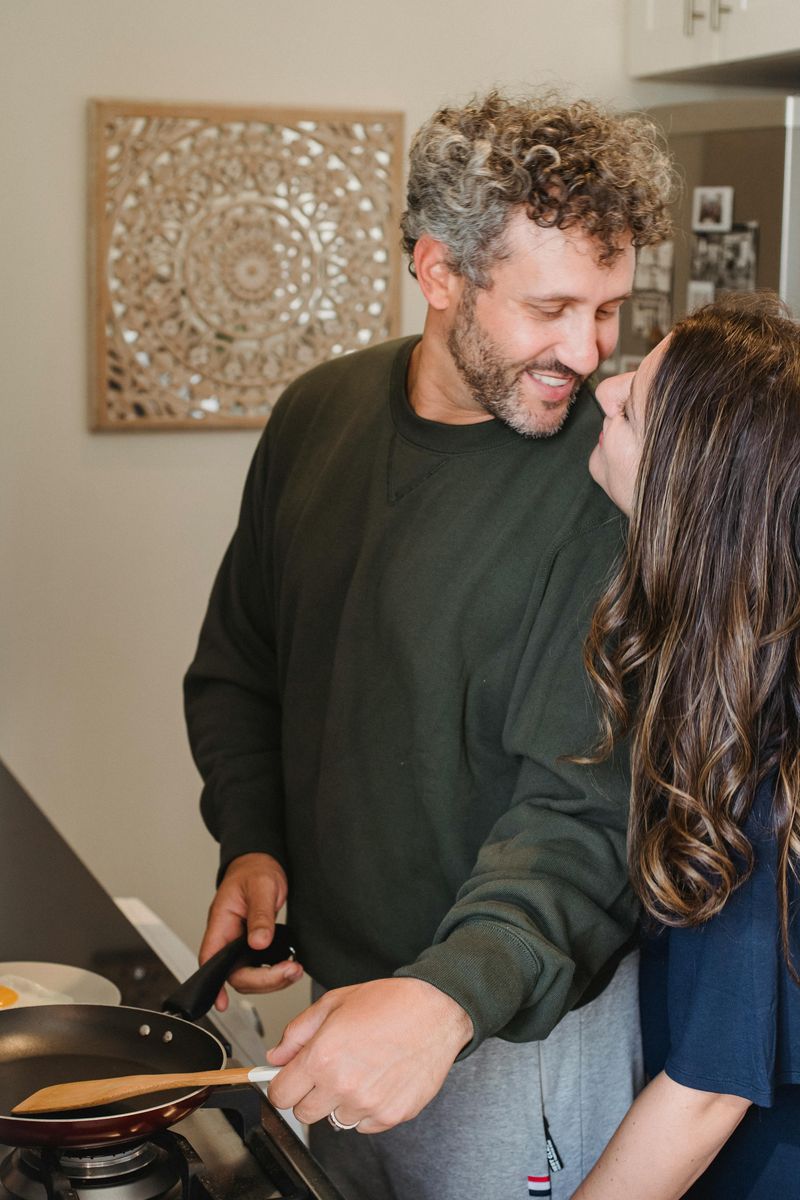Every relationship requires ongoing effort to flourish, just like tending a garden. When couples invest in practices that nurture both individual development and partnership bonds, they create a foundation for lasting happiness. These practices aren’t complicated – they’re simple habits that, when applied consistently, transform ordinary relationships into extraordinary ones. Ready to discover tools that can strengthen your connection while honoring your unique identities?
1. Heart-to-Heart Conversations
Couples who thrive make talking a priority – not just about schedules and groceries, but about dreams, fears, and everything in between. Honest conversations build understanding between partners.
Regular check-ins create a safe space where both people feel heard without judgment. This doesn’t mean always agreeing, but rather listening with genuine curiosity.
Try setting aside 15 minutes daily just to connect, with phones away and distractions minimized. These moments of authentic sharing often become relationship highlights that partners look forward to after busy days apart.
2. Honoring Personal Space
The strongest couples understand that occasional separation actually strengthens togetherness. Having your own hobbies, friends, and quiet time isn’t selfish – it’s essential for bringing your best self to the relationship.
When partners respect each other’s need for independence, they return to the relationship refreshed and full of new experiences to share. This balance prevents the unhealthy merging of identities that can lead to resentment.
Consider creating designated “me time” in your weekly schedule. Even an hour pursuing individual interests can work wonders for personal fulfillment and relationship satisfaction.
3. Celebrating Each Other’s Wins
Remember how you felt when someone genuinely celebrated your accomplishments? That feeling multiplies when it comes from your partner. Being each other’s biggest cheerleaders creates a powerful bond.
When your partner shares good news – whether it’s a promotion or mastering a new recipe – your enthusiastic response matters more than you might think. Researchers call this “active constructive responding,” and it’s linked to relationship satisfaction.
Make it a habit to stop what you’re doing, show genuine interest, and ask questions when your partner shares achievements. This simple practice builds a culture of support that helps both individuals flourish.
4. Growing Through Challenges
Fights happen in every relationship, but how you handle them makes all the difference. Mature couples view disagreements as opportunities to understand each other better, not battles to win.
The key is approaching conflicts with curiosity instead of criticism. Phrases like “Help me understand your perspective” open doors that “You always do this” slam shut. These moments, though uncomfortable, often lead to deeper connection.
Try the speaker-listener technique: one person speaks while the other listens without interrupting, then summarizes what they heard before switching roles. This simple method transforms potentially damaging arguments into growth experiences that strengthen your bond.
5. Learning Together
Couples who learn together stay curious about life and each other. Sharing new experiences – whether cooking classes, hiking trails, or documentary nights – creates lasting memories while expanding your horizons.
Joint learning adventures spark fresh conversations and reveal new sides of your partner you might otherwise miss. The vulnerability of being beginners together also creates a special bond.
Start small with a book you both read and discuss, or try a free online course in something neither of you knows much about. These shared learning experiences become relationship glue that keeps your connection dynamic and prevents the staleness that often comes with routine.
6. Building Trust Through Actions
Trust forms the foundation of every thriving relationship. Small promises kept consistently matter more than grand gestures – arriving when you say you will, following through on commitments, and being reliable in daily life.
When partners demonstrate trustworthiness in ordinary moments, they create emotional safety that allows vulnerability to flourish. This reliability extends beyond fidelity to being someone your partner can count on in all aspects of life.
Practice transparency about your feelings, needs, and concerns instead of expecting your partner to read your mind. This honesty, combined with consistent follow-through on commitments, creates a relationship where both people feel secure enough to be fully themselves.
7. Creating Shared Meaning
Happy couples create their own culture filled with inside jokes, meaningful rituals, and shared values. These elements form the unique story of your relationship that nobody else fully understands.
Morning coffee routines, holiday traditions, or weekly date nights might seem simple, but they create a sense of “us” that strengthens your bond. Research shows these shared rituals significantly increase relationship satisfaction.
Talk about what matters most to both of you – whether it’s family, adventure, creativity, or service to others. Then find ways to build these values into your daily life together. This shared purpose creates a relationship that feels deeply meaningful beyond just companionship.
8. Practicing Daily Appreciation
Gratitude transforms relationships by shifting focus from what’s lacking to what’s abundant. Partners who regularly express appreciation notice more positive qualities in each other, creating an upward spiral of goodwill.
Small acknowledgments matter tremendously – thanking your partner for making dinner, acknowledging their hard work, or simply expressing how much you value their presence in your life. These moments of recognition prevent the dangerous pattern of taking each other for granted.
Try ending each day by sharing one thing you appreciated about your partner. This simple habit trains your brain to notice the good, even during challenging times, and helps both partners feel valued for their contributions to the relationship.
9. Nurturing Physical Connection
Touch creates a unique bond that words alone cannot achieve. Beyond romantic intimacy, everyday physical connection – holding hands while walking, morning hugs, or sitting close while watching TV – releases oxytocin that strengthens your attachment.
Many couples underestimate how physical distance reflects and reinforces emotional distance. Even during busy seasons or conflicts, maintaining simple physical connections helps preserve your bond.
Make physical affection a daily priority through small gestures that feel natural to both partners. Remember that preferences for touch vary widely – discover what makes your partner feel most loved, whether it’s back rubs, hand-holding, or playful wrestling, and incorporate these moments of connection into your routine.
10. Supporting Dreams and Goals
The best partnerships function as mutual fan clubs where both people cheer each other toward their highest potential. This support goes beyond verbal encouragement to practical help that makes dream-chasing possible.
When partners genuinely celebrate each other’s ambitions – whether career advancement, creative pursuits, or personal development – they create a relationship where individual growth and togetherness coexist beautifully. This often requires sacrifice and compromise from both sides.
Have regular conversations about your personal goals and how you can support each other in achieving them. Sometimes this means taking on extra responsibilities while your partner pursues education, or rearranging schedules to accommodate important opportunities. These investments in each other’s growth strengthen your bond.
11. Embracing Change Together
Life constantly evolves, and relationships must adapt alongside it. Couples who thrive see change as an adventure to navigate together rather than a threat to their stability.
Career shifts, health challenges, moving homes, or welcoming children all reshape relationships. Flexibility becomes essential as partners grow and develop in ways they couldn’t predict when first coming together.
Regularly check in about how you’re both changing and what you need from each other now. The relationship that works in your 20s might need adjustments in your 40s. Partners who can openly discuss these evolutions, rather than expecting things to stay the same, build relationships that remain relevant and supportive through all of life’s chapters.











